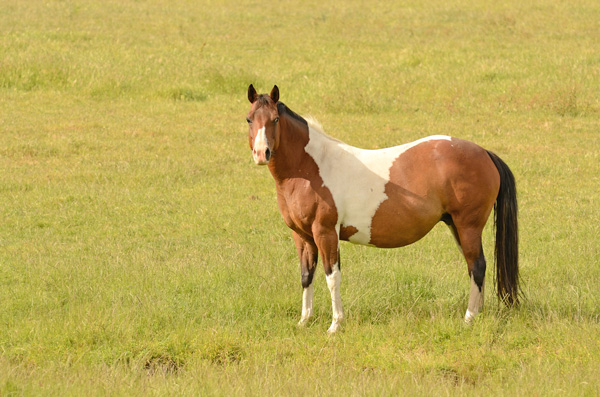
Traveling with horses is all about getting from point A to B easily. That said, life is messy and emergencies happen; however, by driving intelligently and having a game plan “in the event of . . .,” you can hedge your bets and come out ahead on the side of safety.
Neva Scheve, owner of EquiSpirit Trailers and co-author of Equine Emergencies on the Road, offers these tips with a spotlight on the dangers of driving too fast, which she claims is the major cause of trailer accidents.
- Stay under the speed limit so you’ll have plenty of time to react to the unexpected. Also, double the following distance recommended for passenger cars (two car lengths for every 10 MPH), and maintain it even if cars cut in front of you.
- If your vehicle becomes disabled, she says to continue driving until you can get to a safe area, if at all possible.
- If you have a flat tire, pull over on the grass away from the white line even if it means destroying the wheel–wheels can be replaced–and call for professional help. If you have to change the tire, have it re-torqued by a qualified mechanic ASAP!
- DO NOT un-load horses beside the road when on a highway. Go to the nearest exit that has an off road area and unload only if it is necessary. If you are in a situation where you absolutely must unload horses on a highway, request law enforcement assistance to stop traffic.
- Drive with the headlights on at all times to increase visibility, and put reflective strips on the back of your trailer.
- Create a power-of-attorney document that will sanction emergency medical treatment for your horses. In addition, sign a matching Notice to Emergency Responders document, and keep both in the glove compartment of your vehicle. You can download the forms free on the USRiderwebsite.
- Make use of the “In Case of Emergency” (ICE) program to help first responders identify victims and notify key contacts. List your contacts in your cell with the acronym ICE and a number in order of importance, i.e.”ICE-1 John Smith.” You can also use this if you have an emergency and aren’t thinking straight.
In February, we have covered several topics on trailers and safe travel with your horse. Here are links to the other articles:
Travel Emergencies; Ensure Your Horse’s Safety
Tips to Buy Smart When Shopping For A Horse Trailer
Matching Your Trailer With Your Horse


